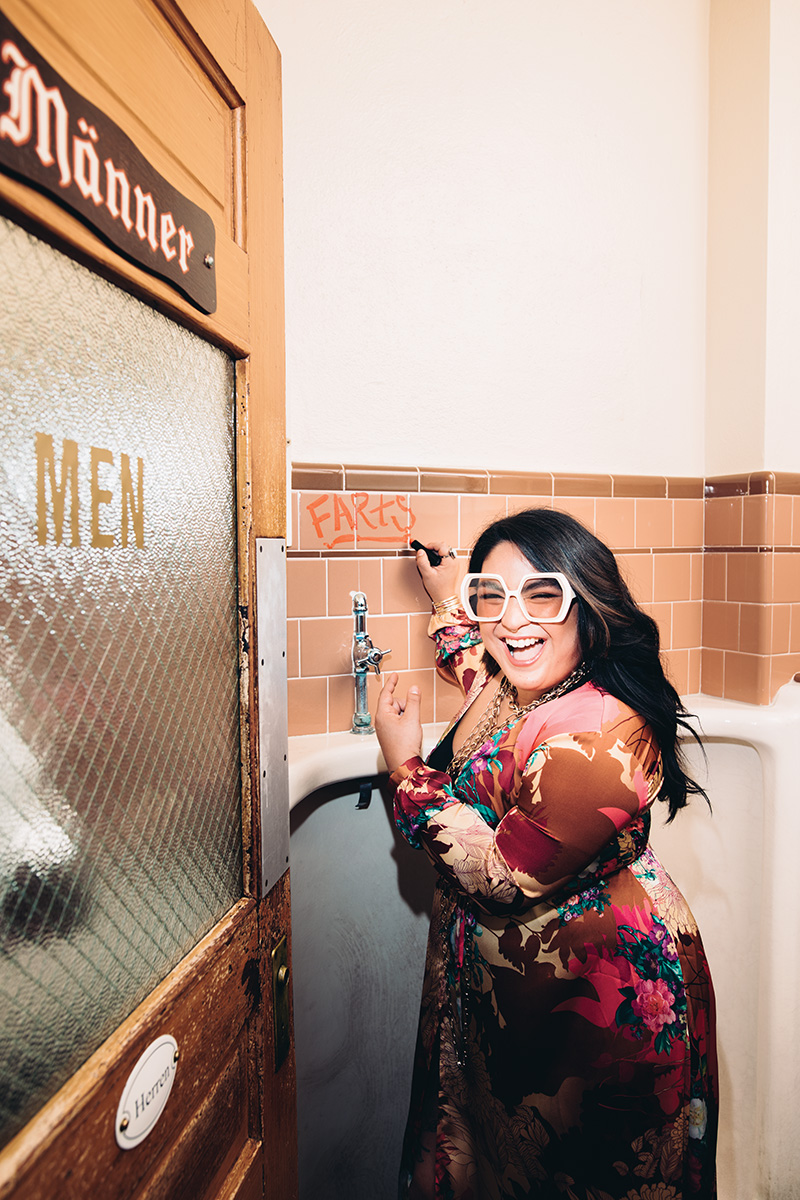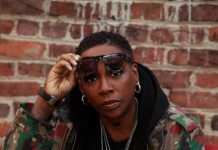
& Josh Scott
Johanna Medranda isn’t just trying to build a name for herself. She’s trying to build a “comedy universe” that looks different from the one she found herself entering when she stepped on stage four years ago to start her stand-up journey.
“When I first started, there weren’t enough women in the scene,” Medranda says. “I think they were a little scared to come into the Detroit scene because it was so male-dominated.”
Of course, that problem isn’t unique to Detroit’s stand-up culture. Stats about how many female comedians are getting stage time these days compared to their male counterparts aren’t readily available. But when we look at studies from adjacent entertainment fields, it’s clear that women in showbiz get about a quarter of the jobs and stage time that men get.
When the Center for the Study of Women in Television & Film released its annual “Celluloid Ceiling” report last year, it found that women made up 21 percent of behind-the-scenes roles on the top 100 grossing films. That’s an increase of just 7 percentage points from 2016. And a somewhat older study — a 2014 survey of who was getting up at the legendary New York comedy club Carolines — found similar numbers, with just 20 percent of comics on stage being women.
Describe your style of comedy for someone who’s never seen you.
“Raunchy and true and personal and relatable. I really deep-dive into my own personal experiences and try to find the funny in them. When I talk about those things on stage, I notice people laughing — but also agreeing with me. That’s what’s always been really important to me — for my material to allow you to see me but also see yourself and, ultimately, not take yourself so seriously.”
Medranda says anecdotal evidence from her own experiences in the scene back up those numbers. “You get a lot of smirks. A lot of cold shoulders. The word ‘unwelcoming’ comes to mind,” she says. “I had a comedian literally say to me, ‘What are you doing here? You don’t fit in.’ But it made me want to come back.”
Indeed, Medranda’s comedy betrays none of the gatekeeping she’s had to overcome. Her performances are fiery and confident, filled with brash observations about family, relationships, and life in general as seen through the lens of a first-generation Peruvian immigrant. But there’s little doubt her experiences in a male-dominated business have shaped Medranda into a socially conscious entrepreneur focused on carving out a space not just for herself but ultimately for other women and queer-identifying performers.
And Medranda’s universe continues to expand.
She began her own production company shortly after she started doing stand-up, naming it Honorary Mentions for the stand-up comics who are often treated as such instead of as features or headliners. She produces the show alongside fellow comics Connor Meade, Asia Marie Hicks, Mandy Stark, and Carolyn Paul. She also hosts a weekly podcast with Paul and Meade called Each Other’s Mothers out of a home studio she plans to share with other podcasters. Meanwhile, her monthly stand-up showcases at Trixie’s in Hamtramck — an unofficial home to emerging comedic voices — regularly sell out (the next one is Sept. 17).
“We’re a big reason why so many other women have taken to the stage and have tried to make a name for themselves,” Medranda says. “I’m pretty proud of what we built.”
This story is featured in the September 2021 issue of Hour Detroit magazine. Read more stories in our digital edition.
|
|
|









